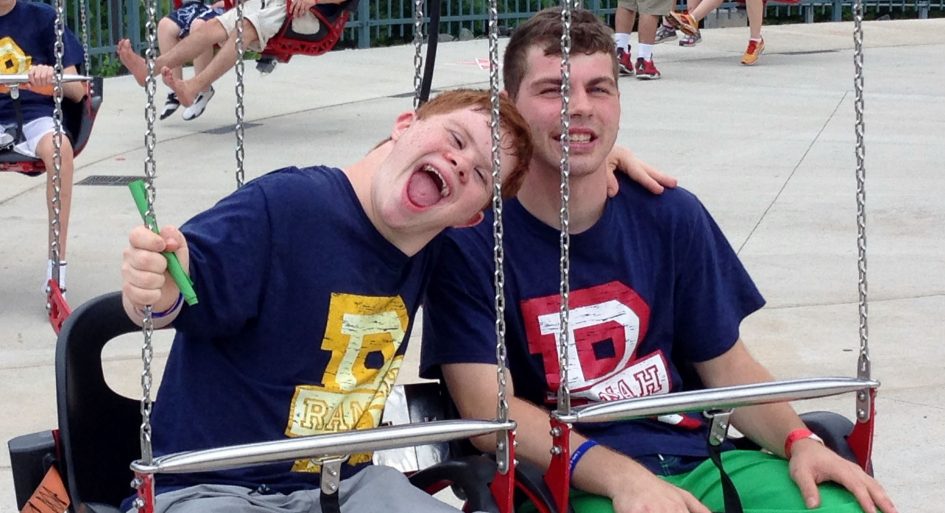Camp Ramah in New England’s Tikvah Program Highlighted in Neurology Now Magazine

Our wonderful Tikvah Program for children and young adults with disabilities was highlighted in the recent issue of Neurology Now Magazine. Here is the article:
CAMP RAMAH TIKVAH PROGRAM
- COGNITIVE DELAYS
- Locations: Palmer, MA, and multiple locations nationwide
- Duration: Two to six weeks
- Special requirements: Different age and special needs requirements by program; all programs emphasize Jewish life and traditions
- Cost: Varies based on duration and location; typically ranges between $2,300 and $8,500, with some financial aid offered
- More information: CampRamah.org
Most camps for kids with neurologic conditions are freestanding, specialized camps focused on one condition alone. At some other camps, a specialized program runs alongside a regular summer camp.
That’s how it works at Camp Ramah, a network of nine Jewish summer camps that is a pioneer in the inclusion of campers with disabilities such as Down syndrome, autism, and developmental disorders with their neurotypical peers for a diverse summer camp experience. disabilities. Its national Ramah Tikvah program has locations at Ramah camps throughout the country. For example, the Tikvah program at Camp Ramah Darom in Clayton, GA, serves children with autism spectrum disorder, social anxiety, pervasive developmental disorder, and nonverbal learning disorders.
INTEGRATIVE CAMPING
“Each camp is a little bit different,” says Howard Blas, who directs the National Ramah Tikvah Network. “The one in New England is our oldest and largest and probably has the widest range of campers with disabilities. Some are on the autism spectrum, some have intellectual disabilities like Down syndrome or Williams syndrome, others have seizure disorders or cerebral palsy—we have campers with many different conditions.”
The Tikvah program runs alongside Ramah’s typical camp, and big chunks of the day happen together, like mealtimes and campfire get-togethers. Some campers with disabilities participate in Ramah’s inclusion program, taking part fully in the typical camp experience, while others spend part of their days with Tikvah and the rest in the typical program. “We are really able to customize and individualize the program; there are many different ways through camp,” Blas says.
Long Island parents Carrie and Alan Chalup first sent their daughter Alexa, now 20, to Tikvah at Camp Ramah in western Massachusetts when she was 9. The middle child of three siblings, Alexa, who has Down syndrome, watched her older brother go off to sleepaway camp and assumed her turn would come. The Chalups visited several other camps before finding Camp Ramah. “We went to visit, and she turned around and immediately said, ‘I want to go here!’ She didn’t say that about any of the other camps,” says Alan. “Ramah integrates neurotypical peers and peers with special needs really well, and everyone respects everyone else.”
FOREVER CAMPER
Alexa began at Camp Ramah as an inclusion camper in a cabin with neurotypical kids, with special needs staff assigned to her. At 16, her parents transitioned her to Tikvah because participants in that program can stay at camp longer than their neurotypical peers who are “aging out.”
“There is quite a range of diagnoses at Camp Ramah,” says Carrie. “There are kids like Lexi who are more independent, can read and write, and just need more help with certain things, but also kids with more severe impairments—some have hearing problems, some are blind with neurologic impairments. The camp makes it work for everyone. We’ve referred many families there, and every parent has said to us after their first year, ‘I can’t believe the change in my child. She’s become so much more independent!’’’